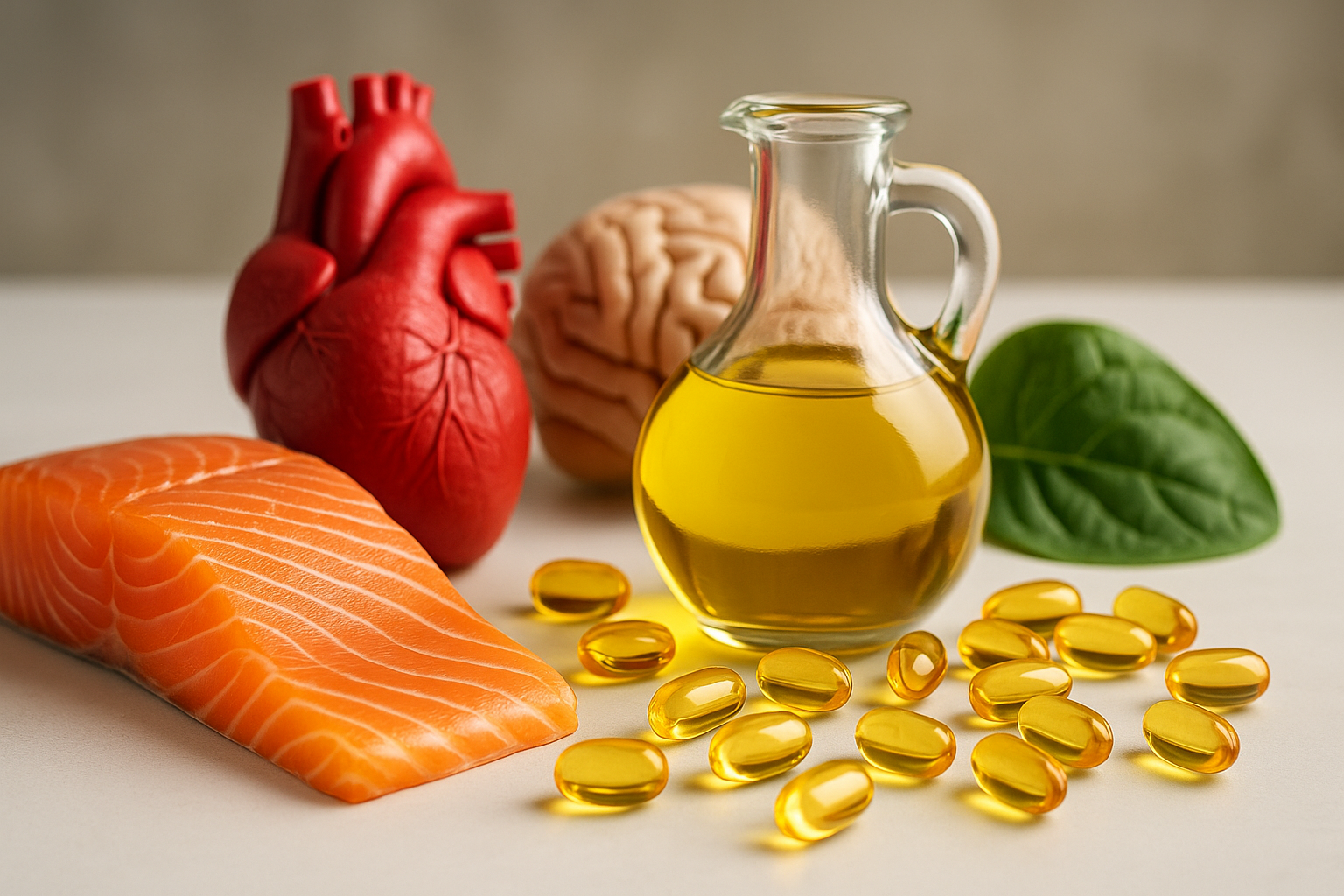
Our heart does hard work: on average it beats around 100,000 times every day, keeps all our bodily functions going and pumps 7,000 litres of blood through the vascular system every day, supplying organs and muscles with oxygen and nutrients. Of course, this mega-active central organ also needs very special vital substances that keep the more than six billion highly specialised heart muscle cells in a good mood and, above all, in the right rhythm. According to studies, nutrition also has a great influence on heart health. The people around the Mediterranean show how it is done.
The annual German Heart Report provides a regular overview of selected heart diseases and cardiological and cardiosurgical care in Germany. The figures it contains are very interesting. According to the current publication, heart disease remains the most common cause of death in Germany. Cardiovascular diseases cause a total of about 40 percent of all deaths. In addition, they are associated with considerable individual consequences of illness and cause high societal medical costs.
At the same time, better outpatient care is becoming apparent, as fewer patients are being treated in hospitals. In the period from 2016 to 2018, the number of heart patients admitted to hospitals as inpatients fell from 1,706,661 to 1,683,948 patients, a decrease of 1.9 per cent. But experts cannot give the all-clear: "The fact that we treated fewer heart patients in hospitals in 2018 does not mean that there are fewer people with heart disease in Germany as a result," says Prof. Dr. Andreas Zeiher, President of the German Society of Cardiology (DGK). "Through better networking in care and in outpatient diagnostic options, fewer patients need to be admitted to hospitals as inpatients."
Risks of heart disease remain very high
Further data of the report: For all diagnoses selected for the heart report, a higher proportion of men fell ill, especially in the case of coronary heart disease and acute myocardial infarction. However, the death rate is different: According to the "Heart Report", men only had a worse prognosis for coronary heart disease and acute myocardial infarction; more women died of valvular heart disease, cardiac arrhythmias and cardiac insufficiency. For example, 23,735 women died of heart failure in 2018 compared to 13,974 men, making the death rate 65.5 per cent higher for women than for men. Even when all heart diseases were considered, more women died than men in 2018 (109,833 versus 102,422).
So the risks with heart disease remain very high. And this in turn means that we should all be much more concerned with our heart health and practice prevention. The most important risk factors for cardiovascular diseases that can be influenced are cardiometabolic diseases such as hypertension, diabetes mellitus, dyslipidemia and obesity, as well as health-impairing behaviours such as smoking, physical inactivity and an unhealthy diet.
Variety of natural vital substances important for heart health
Our heart does hard work: on average, it beats about 100,000 times every day and keeps all our bodily functions going. Every day, the heart pumps 7,000 litres of blood through the vascular system, supplying organs and muscles with oxygen and nutrients. But most people don't thank their heart for this work - instead they expose it to stress and strain without thinking of the consequences. For us, this hard work is completely normal and taken for granted - which is why we notice little of this high performance. Nevertheless, this mega-active central organ naturally needs very special nutrients that keep the more than six billion highly specialised heart muscle cells in good spirits and, above all, in the right rhythm.
In order to support the heart in its performance and at the same time to relieve it, Natura Vitalis developed the special product "heart vitamins" several years ago. It contains a very special nutrient formula that keeps our heart in a good mood. The product contains a variety of natural vital substances and is therefore a real health bomb. Just as our body needs many nutrients for propulsion, our heart must also have enough energy to pump, pump and pump. First and foremost, the product contains the mineral potassium. Potassium is in fact the vital substance that ensures that the heartbeat is regular and does not "stumble", as potassium contributes to normal muscle function. Furthermore, potassium contributes to the maintenance of normal blood pressure and promotes muscle function. If this immensely important mineral is lacking, it can lead to health disorders of the normal heart rate as well as the normal blood pressure.
Another important heart vitamin is folic acid, a vitamin from the B group. Among other things, it contributes to normal blood formation. Since this is the basic prerequisite for sufficient and healthy blood to flow through the circulatory system, this vitamin cannot and should not be missing from the recipe. Speaking of vitamins: Vitamin K, for example, contributes to normal blood clotting. Whether and to what extent vitamin K has other important functions with regard to heart health is currently still being researched by scientists.
Mediterranean diet lowers the risk of heart attack and stroke
According to studies, nutrition also has a great influence on heart health. The people of the Mediterranean show how it is done. Various scientific studies have shown that a plant-based diet in particular is beneficial for heart health. But not only vegan, also Mediterranean cuisine with lots of vegetables can contribute to the protection against cardiovascular diseases. In addition, Mediterranean cuisine stands for conveying pleasure and joy in eating. So if you always eat according to the recipes of the Mediterranean cuisine, and ideally start when you are still a child, you will contribute to better vascular function in young adulthood. This lowers the risk of heart attack and stroke, but also of other chronic diseases such as cancer or diabetes. Health experts have drawn this conclusion because in the 1960s it was found that people in the Mediterranean region were less likely to suffer from coronary heart disease and lived longer than those in other countries. And even today, various studies prove the positive effect of the traditional Mediterranean diet with vegetables, salad, fish and olive oil.
To accompany this, one and a half to two litres of mineral water, diluted fruit juices or unsweetened fruit and herbal teas should be drunk daily. Drinks containing caffeine are only recommended in moderation. And by the way, you lose weight and relieve your metabolism - because obesity is also a risk factor for many ailments, just like cigarette and alcohol consumption. If vessels harden, the cause is usually fatty deposits in the walls of the vessels. It is mainly the unfavourable LDL cholesterol that is deposited. Its value can be lowered with the help of polyunsaturated fatty acids, which are ingested through food and cannot be produced naturally in the body. Therefore, it makes sense to replace French fries, convenience food, meat and sausage with walnuts, sea fish and rapeseed oil. Whole grain products also promote digestion - and they keep you full for a long time.
* This text may contain translation errors as the translation was performed by an online translation tool.










